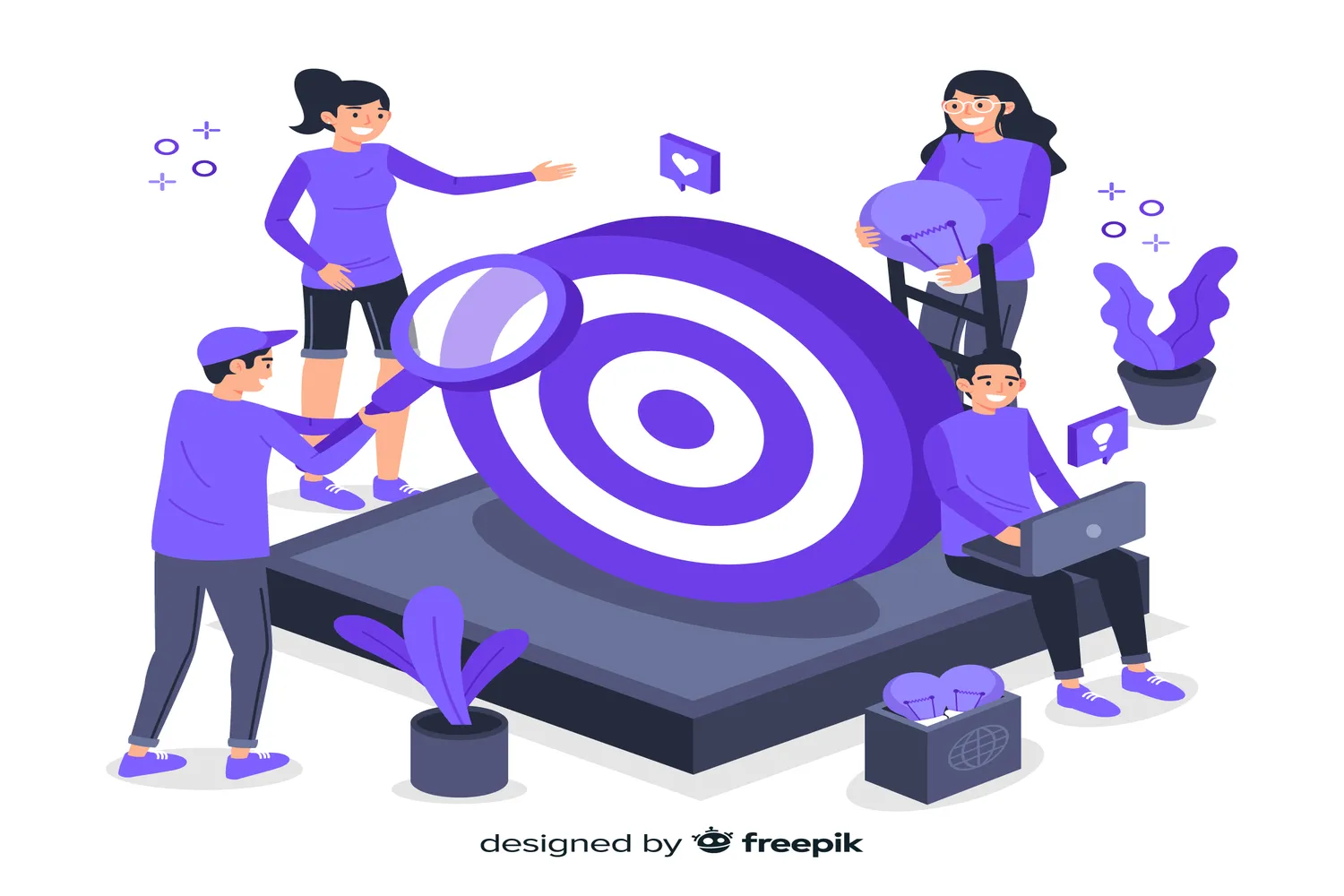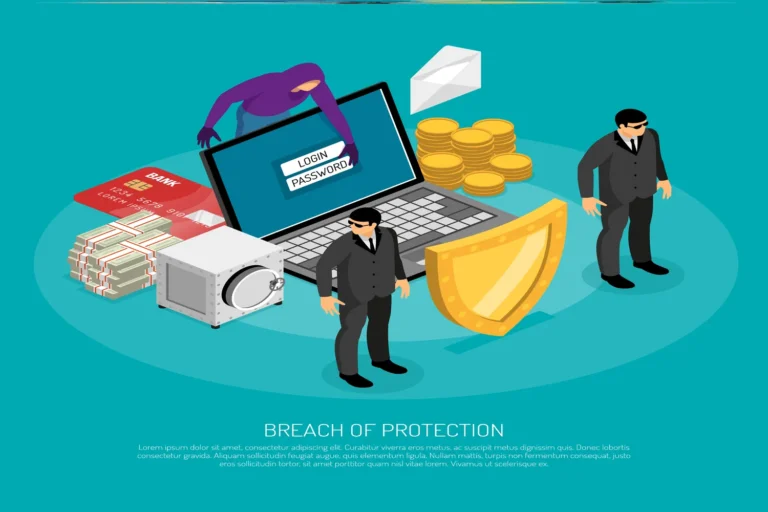Nigerian business owners must know the differences between B2B (business-to-business) and B2C (business-to-consumer) sales. Both of these models involve selling goods or services, but they are very different in how they work, how they deal with customers, and how they change over time. Understanding these differences between Nigerian B2B and B2C sales will help you tailor your sales approach to different Nigerian market groups and grow your business in all of them, whether you’re selling to other companies or individuals.
Target audience
- Business-to-business, or B2B: When you focus on business-to-business sales, you’re trying to reach other companies. These companies want to find goods or services to help them run more smoothly, make more money, or fix specific issues. In Nigeria, business-to-business (B2B) sales are based on building long-term relationships with clients and ensuring each business gets the exact answer it needs. It is essential to know their problems and show how your product or service can solve them.

- Business-to-consumer, or B2C: B2C sales, on the other hand, are aimed at individual customers. Most of the time, these buyers are motivated by their wants, needs, or tastes. If you want to sell to people in Nigeria, you need to know their way of life, how they buy things, and what makes them decide to buy. Directly interacting with customers through different venues, such as social media, online ads, and in-store promotions, can help you get to know them better. In B2C sales, providing excellent customer service and making shopping a pleasant experience are essential.
- Key difference:
- One of the main differences between B2B and B2C sales is the choice process. Businesses carefully consider how a product or service will affect their operations, so B2B sales usually involve more people and take longer to close. B2C sales, on the other hand, tend to have shorter sales cycles because customers make decisions more quickly based on their wants and preferences.
- Another big difference is the way marketing and communication are done. In Nigeria, business-to-business marketing is more formal and informational. It focuses on building confidence and trust through case studies, informational videos, and professional networking. Regarding business-to-consumer (B2C) marketing, stories, colourful images, and special deals are often used to attract and keep users.
- Understanding these differences is essential to make marketing plans that work for your audience, whether marketing to Nigerian companies or individual consumers.
How sales work
- Business-to-business, or B2B: It takes longer and involves more steps in business-to-business sales. You will have to work with many people in an organisation, each with their own needs and worries. Researching and finding possible clients is often the first step in the process. The next step is usually making the first contact and building a relationship. To meet the goals and solve the problems of the business, it is essential to have presentations, product demos, and in-depth conversations. Negotiations can last long, so you must be patient and persistent. Ultimately, both sides want to sign a good long-term deal for both of them.
- Business-to-consumer, or B2C: It usually takes less time and is easier to understand when selling to consumers (B2C). People who shop on their own tend to make choices faster, and these decisions are often based on immediate needs or wants. Your job is to get their attention quickly and give them a solid reason to buy. This means making appealing marketing efforts, running sales, and ensuring customers have a smooth and enjoyable shopping experience. Building a strong company presence and keeping customers happy are the main goals to get them to buy again and stay loyal.
- Key differences:
- The most crucial difference between the B2B and B2C sales processes is how decisions are made. When you sell to businesses, you deal with more innovative, informed people who need more knowledge and purchase reasons. To show them how valuable your product or service is, you need to give them detailed information, case studies, and proof of ROI (Return on Investment).
- B2C sales, on the other hand, involve buying things based on feelings and impulses. Personal tastes, trends, and suggestions from different people all affect what consumers buy. To make your goods stand out, your marketing should focus on connecting with your audience emotionally through stories, appealing visuals, and exciting content.
- You need to know about these differences to ensure that your sales strategies fit the needs and habits of your target group. If you see how the two sales processes differ, you can better handle the challenges of selling in Nigeria and be more successful in both B2B and B2C markets.
Decision-making process
- Business-to-business, or B2B: In business-to-business sales, decisions are usually made more organised, with more than one level of approval. You often work with multiple people who make decisions, like executives, managers, and area heads. All of these people may have different needs and concerns, so you need to meet a lot of other people’s wants and offer complete solutions.

A thorough needs analysis is usually the first step in the process. This is where you figure out exactly what problems the business is having. After that, you give customised answers that show how your product or service can deal with these problems successfully. At this time, it’s essential to have detailed proposals, presentations, and ROI analyses. Companies want to know that they can trust you and that your services will last, so it’s essential to show that you can do these things. It would be best if you were patient and persistent because making a choice can take a long time and involve much talking and judging.
- Business-to-consumer, or B2C: When it comes to business-to-consumer sales, making a choice is usually faster and easier. People choose what to buy based on their tastes, feelings, and immediate wants. You must quickly get their attention and give them a solid reason to buy. This can be done with ads that catch the eye, material that keeps people interested, and promotions that take more work to pass up.
Usually, the first step is making people aware of your product or service. This is done by showing possible customers what it does. The next step is thought when customers compare what you have to offer to what other companies have to offer. The last step is the choice stage, where they buy something. It is essential to ensure the buying process goes smoothly and is fun. Transparent information, good reviews, and easy access to customer service can all significantly affect their choice.
- Key differences:
- The main things that make the decision-making process for B2B and B2C different are the level of complexity and the reasons for the buy. When selling to other businesses, you must follow steps and make intelligent choices based on long-term rewards and cost-effectiveness. You must show how your solution fits the business plan and give detailed information and case studies.
- Regarding business-to-consumer sales, people make decisions more quickly and based on their current and emotional needs. Consumers are affected by a brand’s reputation, how it looks, and what their friends say about it. Your marketing should connect with people on an emotional level by using appealing images and convincing copy to get people to buy from you.
- Knowing these differences allows you to change your approach to fit the needs of your B2B or B2C target market. This information will also help you make better decisions in Nigeria, leading to better results and more sales.
Build relationships
- Business-to-business, or B2B, sales require building solid and long-term ties with clients. You’re not just selling a service or product but building a relationship that involves trust and regular contact. To make these connections, you need to take the time to learn about your clients’ businesses, problems, and goals.
It is essential to have regular check-ins, personalised service, and problem-solving that is done ahead of time. Nobody should see you as a vendor; they should see you as a trustworthy expert who can offer helpful advice and support. Professional groups, industry conferences, and networking events are all great places to meet new people and make lasting connections. In the business-to-business world, your image and the quality of your relationships can significantly affect how well you do.
- Business-to-Consumer, or B2C: Building relationships in B2C sales is still essential but in a different way. Here, the goal is to give your people a good experience they will remember. You want your customers to love your company so much that they buy from you again and tell their friends about it.
You can keep your company in people’s minds by interacting with them on social media, email newsletters, and personalised marketing campaigns. A good connection is built by giving excellent customer service, answering questions quickly, and dealing with problems well. You can get closer to your customers with loyalty programmes, special deals, and personalised suggestions. Every interaction in business-to-consumer (B2C) sales is a chance to build a good bond with the customer and make them happier.
- Key differences
- When building relationships, the main differences between B2B and B2C are the type and depth of the connections. In business-to-business (B2B), ties are usually more profound and strategic, and you need to keep working with the client and understand their business. Trust, dependability, and steady delivery of value are paramount.
- Most B2C ties are transactional, but they can still be meaningful. The goal is to make the experience smooth and enjoyable and to build brand trust. Personalised contact, excellent customer service, and rewarding customers who stick with you are essential.
- Knowing these differences, you can tailor your relationship-building strategies to the wants of your B2B or B2C target market. Forming solid and long-lasting links will help your business succeed in Nigeria.
Market strategies
- Business-to-business, or B2B, marketing: When selling to businesses, you should focus your marketing on showing you know what you’re talking about and building trust. Content marketing is critical; you must create and share helpful content that solves problems and meets the needs of the people you want to reach. This can include case studies, webinars, white papers, and reports on the business.
LinkedIn is a great place to sell to other businesses. Share content, join groups for your business, and get in touch with possible clients. Email marketing also works, especially when it’s personalised and contains valuable information.
For business-to-business marketing in Nigeria, networking events and trade shows are musts. They allow you to meet possible customers in person, show off your goods or services, and make connections.
In your marketing materials, you should stress how your products can make things more efficient, lower costs, or fix specific issues. Giving references and case studies can help people believe you and show that you’ve been successful in the past.
- Business-to-consumer, or B2C: Business-to-consumer (B2C) marketing aims to get people interested in your company and make them feel connected. It would be best if you were on social media sites like Instagram, Facebook, and Twitter to reach your community. You can share visually appealing content, run ads, and talk to your fans on these sites.
When it comes to B2C, influencer marketing can work very well. You can reach more people and build trust by working with influencers who are popular with the people you want to get.
Email marketing is also essential for B2C. Keep your customers interested and updated by sending them personalised emails with deals, news, and exciting material.
Your marketing messages should be easy to understand and catchy. They should all discuss how your goods or services can help people. By sharing stories, you can connect with your audience and show them how valuable you are to their lives.
- Key different
- The methods and tools used are the main ways that B2B and B2C marketing vary. In B2B, you must make connections, show off your knowledge, and give practical, in-depth material. The marketing platforms are more business-like, often including LinkedIn, email marketing, and events for the industry.
- In B2C, the goal is to connect emotionally with customers, interest them, and get them to buy immediately. Social media, partnerships with influencers, and visually appealing material play a big part. The messages are usually more direct and focused on benefits to attract and keep people.
- Knowing these differences can ensure that your marketing strategies are effective and that you connect with your target group most powerfully. In Nigeria, this is how you can help your business grow and succeed.
Set prices and negotiate.
- Business-to-business, or B2B, sales often involve more difficult pricing and negotiating and require a more planned approach. You usually deal with more significant deals, and the prices are generally tailored to meet the needs of each client. That’s why you should know how much your product or service is worth to the customer and price it accordingly.
When negotiating with business-to-business clients, stress your offer’s long-term advantages and return on investment (ROI). You should be ready to discuss your prices and back them up with detailed facts and case studies. Flexibility is essential; you may need to offer significant discounts, longer payment terms, or custom solutions to meet the client’s needs.

Building strong ties with your clients is also very important. Trust and trustworthiness are often crucial in negotiations. Make sure your clients believe you can keep your promises.
- Business-to-consumer, or B2C: When selling to customers directly, prices are usually more straightforward and are meant to appeal to a wide range of people. Your pricing plan should be based on how much people think your product or service is worth while still being competitive.
Discounts, promotions, and other special deals can help with B2C pricing. They can help bring in new users and boost sales right away. For example, giving seasonal discounts, bundle deals, or rewards for loyal customers can encourage them to buy and keep them as customers.
In business-to-consumer (B2C), negotiations are less common and only happen in some instances, like when buying something expensive or making something just for you. In these situations, being clear about your prices and giving excellent customer service can help the negotiation process go smoothly.
- Key differences
- The main differences between pricing and negotiating tactics for B2B and B2C are the types of transactions and relationships involved. In business-to-business (B2B), prices are often more flexible and can be negotiated based on what the client wants and how much value your solution offers. The negotiation process is more in-depth; you must use facts to back up your prices and build lasting relationships.
- Regarding business-to-consumer, prices are generally set and meant to appeal to a wide range of people. Discounts and promotions are popular ways to get people to buy things. Negotiation happens less often and usually only in certain situations.
- Understanding these differences is essential to devising reasonable prices and negotiating strategies for those you want to buy from. By doing these things, you can keep your business competitive and appealing to customers in Nigeria, whether you’re in the B2B or B2C area.
Read Also. What Are The Productivity Tips For Small Business Owners In Nigeria?
Conclusion
Understanding these differences between Nigerian B2B and B2C sales will help you tailor your sales approach to different Nigerian market groups and grow your business in all of them, whether you’re selling to other companies or individuals.
Ensuring your business is listed in our online directory is essential for growth and exposure in Nigeria’s challenging market. Sign up today to use our directory’s extensive network to reach more people and make your business more visible online.


